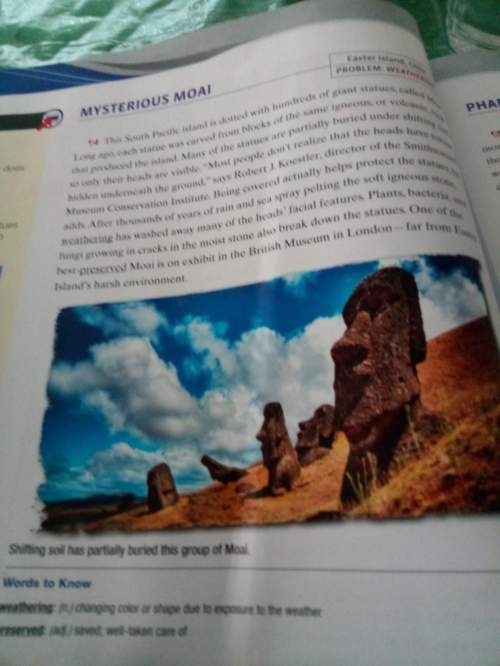
English, 26.06.2019 22:30 bapehoodboi
1: (n.) the right to operate sea, air, or other transport services within a particular territory.2: restriction of the operation of sea, air, or other transport services within or into a particular country to that country's own transport services.1 year ago an air, sea and land blockade was imposed on qatar by four arab countries: saudi arabia, the united arab emirates (uae), bahrain and egyptwhat is the appropriate word to use on the definition on top?

Answers: 1


Another question on English


English, 22.06.2019 02:00
When mrs. jameson says "it (the desert) won't leave you cold," what does she mean?
Answers: 1

English, 22.06.2019 08:00
What is the missing statement in step 3 of the proof? given: z1 is complementary to 22. 22 is complementary to 23. prove: m_1 = m23 m21 = m2 m2 1 + m22 = 90° m22 = m23 m22 + m23 = 180° 2 statements 21 is comp. to 22 2. 22 is comp. to 23 3. ? 4. mz1 - 90°-m22 m22+m23 = 90° 6. m23 = 90°-m22 7 m21 - m23 reasons 1. given 2. given 3. def of comp. zs 4. subtr equality prop. 5. def. of comp. 25 6 subtr. equality prop 17. trans. prop. vo
Answers: 1

English, 22.06.2019 09:00
Part 2: thoreau’s ideas had a profound effect on a man named gandhi. gandhi, was a leader in india who worked to end british rule. he led india to independence and inspired many to non-violent forms of protest and resistance. he fought to end poverty, worked to expand women's right to vote, and built bridges between ethnic and religious groups. like thoreau, he lived simply, owned very little, and ate a vegetarian diet. in india, gandhi's form of protest was called the "non-cooperation movement." he urged indians to boycott british education systems and leave government jobs. the movement was very popular, and in part to stop its spread, the british controlled government arrested him. after a few years, he was released and became active in politics again. he inspired many to follow him on marches to protest various taxes. on one such march, thousands followed him 240 miles over 24 days to the sea to protest a salt tax. this march set the example of non-violent resistance to the government that others in the country followed. eventually india won independence from britain, in large part because of gandhi work. gandhi's model of resistance and reform was creative, appealing, and successful. as a result, dr. martin luther king looked to gandhi when the time came to find a way to resist segregation in the south. the lunch counter protests, famous for the passive response to anger, and even violence, aimed to end the separation enforced by laws in some regions of the south. king also organized walks, marches, and bus rides that were meant to bring attention to the issues facing african americans. these forms of protest were directly modeled on gandhi's, but king took them straight to the source of oppression. where gandhi's protests created awareness and built momentum, king's protests were in the face of great hatred and fear. the passive, non-violent protests were ultimately effective, mainly because the passive response to violence cast the opposition as brutes. however, change came slowly and at the cost of many lives. king remained committed to peaceful protest, however, until his death. king learned from gandhi, expanding on what worked, applying old techniques to a new problem. gandhi owed his philosophy, in part, to a new england poet who loved the woods. read this sentence from part 2: like thoreau, he lived simply, owned very little, and ate a vegetarian diet. what is the point of this sentence? gandhi and thoreau had similar childhoods. gandhi had many admirable qualities. thoreau and gandhi were very similar. thoreau had a simple life compared to others.
Answers: 2
You know the right answer?
1: (n.) the right to operate sea, air, or other transport services within a particular territory.2:...
Questions


Physics, 29.03.2020 02:36

Biology, 29.03.2020 02:36

Biology, 29.03.2020 02:36


Mathematics, 29.03.2020 02:36


Mathematics, 29.03.2020 02:36






Mathematics, 29.03.2020 02:37




Computers and Technology, 29.03.2020 02:37






